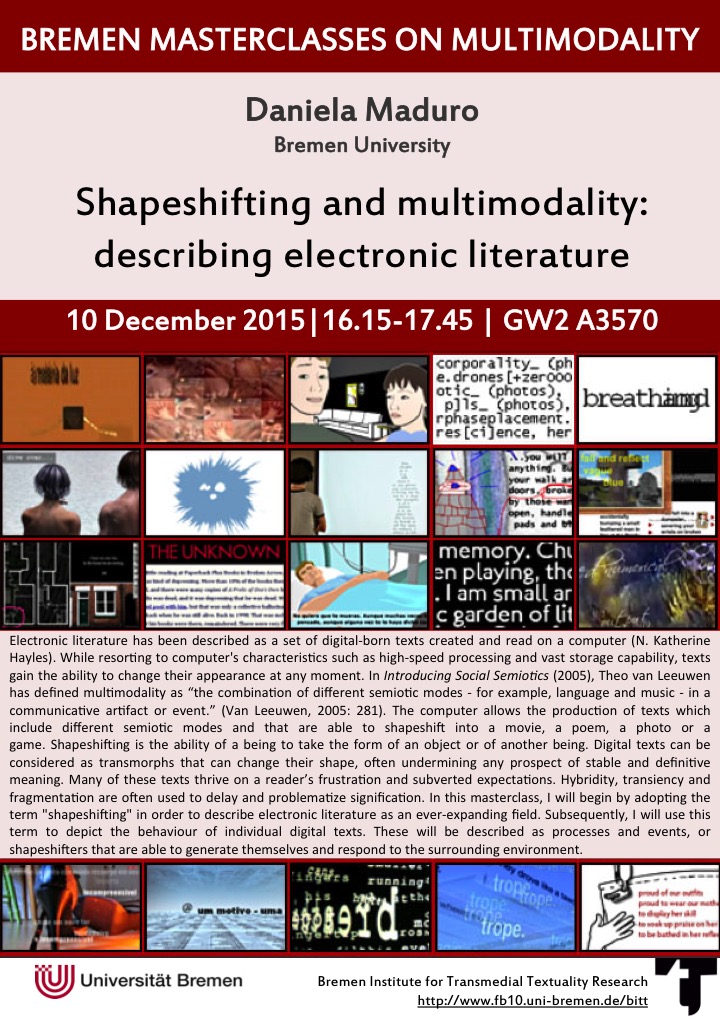Der Vortrag von Daniela Maduro, wissenschaftliche Mitarbeiterin im Fachbereich 10, beschäftigt sich mit dem Thema „elektronische Literatur“:
Daniela Maduro, Universität Bremen
Shapeshifting and multimodality:
describing electronic literature
10. Dezember 2015, 16.15-17.45
GW2 A3570
Bremen Masterclasses on Multimodality
Abstract zum Vortrag:
Electronic literature has been described as a set of digital born texts created and read on a computer (N. Katherine Hayles). While resorting to computer’s characteristics such as high-speed processing and vast storage capability, texts gain the ability to change their appearance at any moment. In Introducing Social Semiotics (2005), Theo van Leeuwen has defined multimodality as “the combination of different semiotic modes – for example, language and music – in a communicative artifact or event.” (Van Leeuwen, 2005: 281). The computer allows the production of texts which include different semiotic modes and that are able to shapeshift into a movie, a poem, a photo or a game. Shapeshifting is the ability of a being to take the form of an object or of another being. Digital texts can be considered as transmorphs that can change their shape, often undermining any prospect of stable and definitive meaning. Many of these texts thrive on a reader’s frustration and subverted expectations. Hybridity, transiency and fragmentation are often used to delay and problematize signification. In this masterclass, I will begin by adopting the term „shapeshifting“ in order to describe electronic literature as an ever-expanding field. Subsequently, I will use this term to depict the behaviour of individual digital texts. These will be described as processes and events, or shapeshifters that are able to generate themselves and respond to the surrounding environment.
